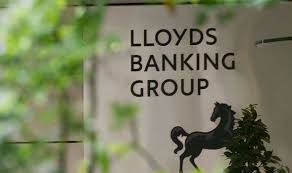On Wednesday, the main banks in Europe, notably Deutsche Bank and Lloyds Banking Group, warned that the possibility of default was rising as the world economy battled poor growth and high prices.
Financial authorities and investors are closely monitoring how banks respond to the unstable economic environment and are especially on the lookout for any indications of stress in the loan books of banks.
A deal drought is putting pressure on investment banks, while higher interest rates are boosting retail banking profitability. These larger trends in global banking were emphasized by the most recent flurry of bank profits in Europe.
As Britain’s economic slowdown put further strain on its finances and increased pressure on management to do more to assist savers, Lloyds made a bigger charge for troublesome loans and failed first-half profit projections.
JPMorgan analysts predicted that Lloyds’ charge for possibly impaired loans would be greater than expected and increase by 76% to 662 million pounds ($855 million), which would result in a downgrading of the company’s performance for the year.
Shares of Lloyd’s fell 3% in the morning on Wednesday.
UniCredit significantly outperformed earnings forecasts in the second quarter because of higher interest rates. Even if the bank continues to expect a considerable rise in its cost of risk in the future, it won’t be as high as expected.
CEO Andrea Orcel stated, “We don’t expect an Armageddon increase in the cost of risk.”
“We continue to push the anticipated shocks into the future,” he continued.
REVERSAL TILT
Given the robust economic activity in the first quarter, the International Monetary Fund this week marginally increased its projections for global growth in 2023, but warned that enduring difficulties were dimming the medium-term outlook.
According to the report, credit was tight and inflation was declining, but the balance of risks facing the global economy was still skewed to the downside.
The demand for loans from eurozone businesses fell to a historic low last quarter, according to a study released this week by the European Central Bank, and a further reduction is predicted over the summer as banks continue to restrict access to credit.
Banks have been urged to increase the amount of money they set aside for problematic loans by Germany’s financial watchdog, BaFin.
According to data released by Deutsche Bank on Wednesday, bad loan provisions increased to 401 million euros in the second quarter from a year earlier.
The largest bank in Germany experienced a “softening in some sectors,” Chief Financial Officer James von Moltke informed reporters.
At the “upper end” of its previous guidance, the bank now anticipates that provisions for soured loans will be.
In Spain, Santander cited a decline in net profit in Brazil, an important market, where costs rose owing to inflation in the quarter, a tax reversal had a negative effect, and net interest income dropped 4.3%. Net profit plummeted 52% year over year in Brazil.
Brazil’s bad loan market may have already peaked, according to Santander’s financial director.
The results of stress tests performed on banks to see how they would fare under an extended period of high inflation and interest rates are scheduled to be released by European Union banking regulators later this week.
The euro zone’s borrowing costs have increased to their highest level in 22 years according to the European Central Bank. Some banks’ performance has improved as a result of the higher rates.
After revenues increased by a quarter year over year, UniCredit was able to increase its net profit and shareholder incentive targets for the year.
As a result, the bank’s shares increased by almost 2% on Wednesday, according to Jefferies, which believes net interest income, has room to grow.

















